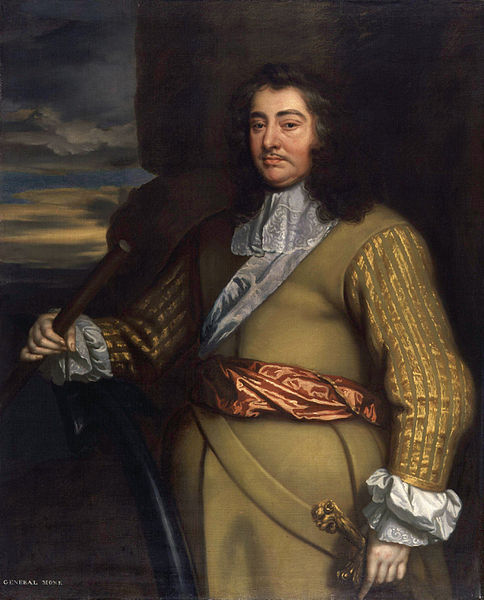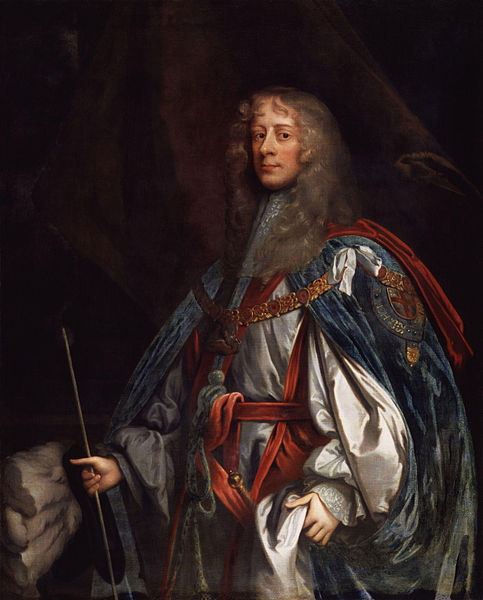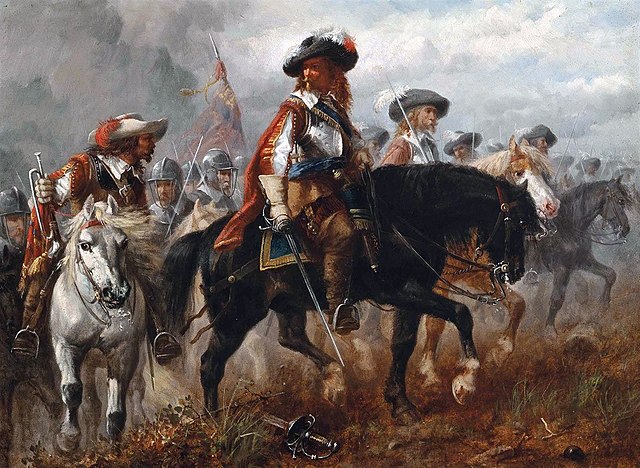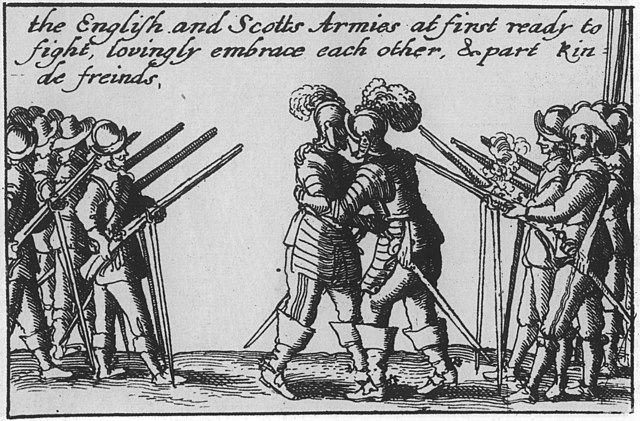George Monck, 1st Duke of Albemarle
George Monck, 1st Duke of Albemarle KG PC JP was an English soldier, who fought on both sides during the Wars of the Three Kingdoms. A prominent military figure under the Commonwealth, his support was crucial to the Restoration of Charles II in 1660, who rewarded him with the title Duke of Albemarle and other senior positions.
c. 1665–66 portrait by Peter Lely
Great Potheridge in 2014, the surviving wing of Monck's family home
The Earl of Ormond, Royalist commander who dominated Irish politics for much of the 17th century
Oliver Cromwell; Monck's support for The Protectorate was based on his personal regard for its leader.
Wars of the Three Kingdoms
The Wars of the Three Kingdoms, sometimes known as the British Civil Wars, were a series of intertwined conflicts fought between 1639 and 1653 in the kingdoms of England, Scotland and Ireland, then separate entities united in a personal union under Charles I. They include the 1639 to 1640 Bishops' Wars, the First and Second English Civil Wars, the Irish Confederate Wars, the Cromwellian conquest of Ireland and the Anglo-Scottish War of 1650–1652. They resulted in victory for the Parliamentarian army, the execution of Charles I, the abolition of monarchy, and founding of the Commonwealth of England, a unitary state which controlled the British Isles until the Stuart Restoration in 1660.
Monarch of the Three Kingdoms: Charles I in Three Positions by Anthony van Dyck, painted 1635–1636
The spark—riot in St Giles' Cathedral, Edinburgh, reputedly started by Jenny Geddes
King Charles I and Prince Rupert before the Battle of Naseby
The English and Scots armies lovingly embrace each other








